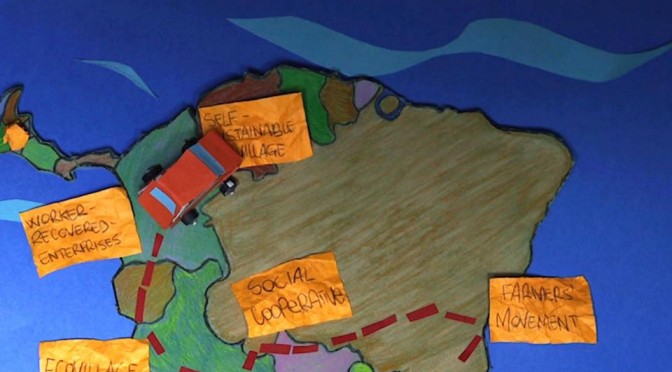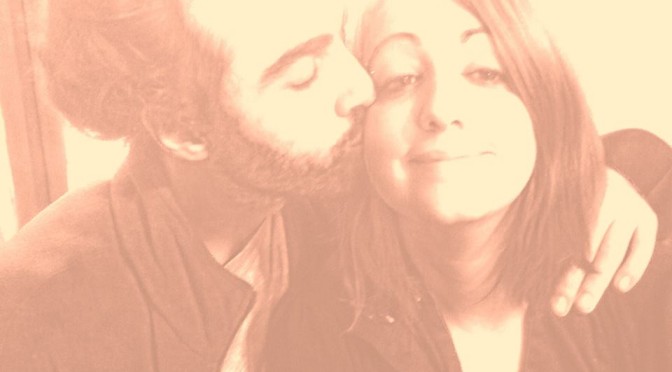It’s a journey, meaning it’s a lot of things rolled up together. Research, first of all, inspired by an observation on which we’d like to investigate some more.
These are times of economic crisis, to which Europe doesn’t seem to have a solution. Meanwhile, in Latin America, indigenous people and farmers are joining forces against multinational corporations – and winning their battles; entire communities are going back to bartering or using alternative currencies; laws are being passed that allow workers to reoccupy and manage bankrupt factories themselves; former guerrilla presidents are criticizing communism and legalizing marijuana… it’s stuff from another planet! But maybe it could teach something to those of us who live in a continent where governments – choked off by the crisis and by budget constraints – still think that cutting social expenditure and privatizing common goods is the answer.
And while the crisis over here deepens, on the other side of the ocean they’re talking about buen vivir and making solidarity the fulcrum of the economic sphere, they’re experimenting and they may be laying the foundations for something different from the mainstream model, whose contradictions are becoming more and more apparent.
Capitalism hit Latin America particularly hard, making it imperative to look for alternatives – a search that fuelled both practical attempts and theoretical research. What’s more, the case of Latin American proves that – on a political level – this is not just a residual utopia, but it can be a winning vision. There may be a lot we can learn from that. It may be nice to open a dialogue, to find out if what’s working over there might work over here too, to identify its strengths and weaknesses.
We would like to bring together all the stories we will be told, in order to establish links and promote contamination. We will do it through a journey which will begin in March in Argentina and unfold through Chile, Uruguay, Brazil, Bolivia, Peru, Ecuador, all the way up to Mexico.
It will be a journey full of listening, curiosity, conviviality and sharing. We will come face to face with scholars of solidarity economy, experiences, movements. We will chat of possible worlds, and – to make things more interesting and more complicated – we will suggest doing so in front of the stove, cooking. And we will share the recipes with you.
There are going to be many challenges, starting with changing our lifestyle, getting on a car that will be our home for the next year and facing the roads of South America (or the lack thereof). Learning Spanish, for real. Leaving behind our jobs, our lives, our friends to discover what’s on the other side.
We don’t know what we will find, we don’t know if the answers are going to be general or personal, but there’s one thing we are sure about: we want to share them with whoever reads this blog.
***Translated by Beatrice Gechele***

